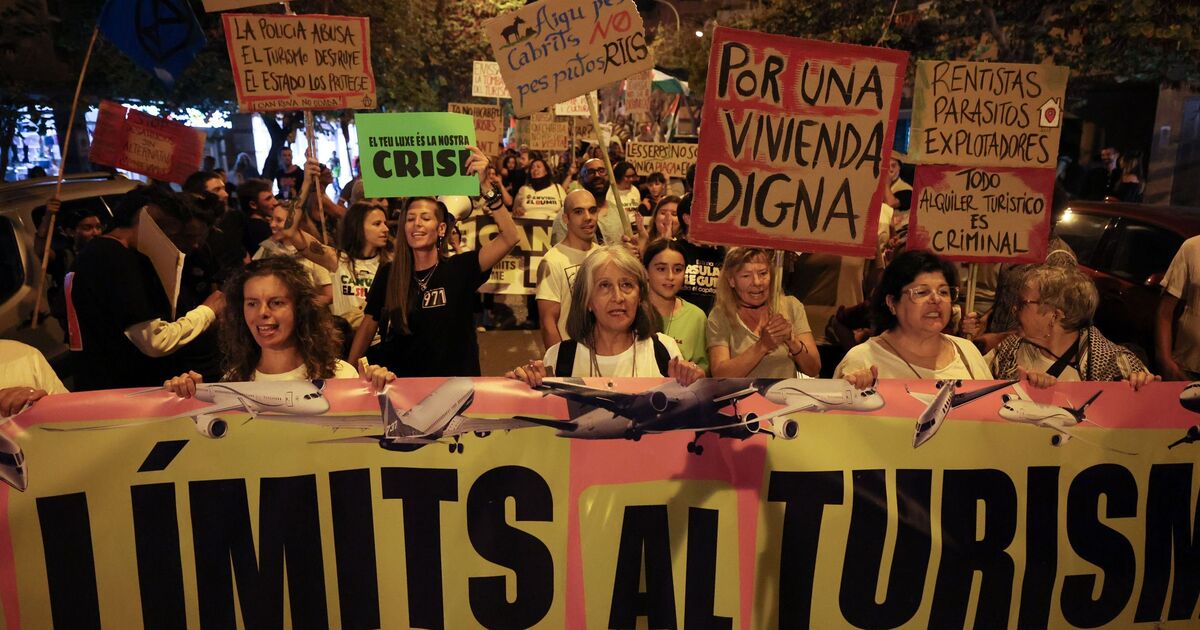Protests are planned in San Sebastian today and in Seville in November as mounting frustration about overtourism grows across Spain.
San Sebastian residents will march under the banner “We are in danger; degrow tourism!”, following in the footsteps of the Canary Islands where thousands took to the streets last Sunday.
As part of “October against touristification” planned by the civic organisation Bizilagunekin (meaning “with the neighbours” in Basque), the protest is a culmination of debates, talks and events over its belief the city caters to tourists rather than residents.
The association said: “Tourism, which for a few is the golden goose, is an economic model which is choking the rest of us.”
A member of the platform, Asier Basurto, added that tourism leads to unstable jobs and public spaces that only cater to short-term visits: “All our city’s services have been put at the orders of the tourism industry.”
Basurto told the BBC he also believes tourists are pushing up rentals, obliterating the sense of community by pricing out locals: “We’ve had a way of living for generations and generations – in which people are connected and those who arrive are integrated.
“If we have a model whereby people just visit for five days and then leave, then it becomes a soulless theme park, without culture, without a community.”
Rental prices are a common theme of frustration across Spain. To tackle the problem, the City Council of Seville, where protests are set to take place in November, has announced that tourists’ apartments will be allowed to account for 10 percent of residences in all 108 of the city’s neighbourhoods.
Overtourism protests have sparked across Europe this year as the tourism industry has seen numbers climb back to pre-pandemic levels or even surpass them, and residents in Spain, Italy and Greece have taken to the streets.
Spain is expected to receive more than 90 million foreign visitors by the end of the year, and the consultancy firm Braintrust estimates the number will rise above France, which is currently at the top, to reach 115 million by 2040.
April saw Spain’s first of many protests in the Canary Islands, which included a hunger strike by six people in Tenerife in an attempt to stop a tourism project.
Since then, residents in Málaga, Mallorca, Ibiza, Granada, Alicante and Barcelona have protested, which in some cases included visitors being sprayed with water pistols and told to “go home”, and the locks of tourist apartments being covered in faeces.
However, with tourism representing 13% of Spain’s GDP and providing around three million jobs, its supporters insist that the industry is essential to the economy and it drove the post-pandemic recovery.
Head of tourism for the conservative People’s Party (PP) in the Canary Islands David Morales spoke out to protect: “the right of tourists to enjoy their holidays without being the target of interruptions or gestural or verbal attacks, and certainly not physical attacks.”









